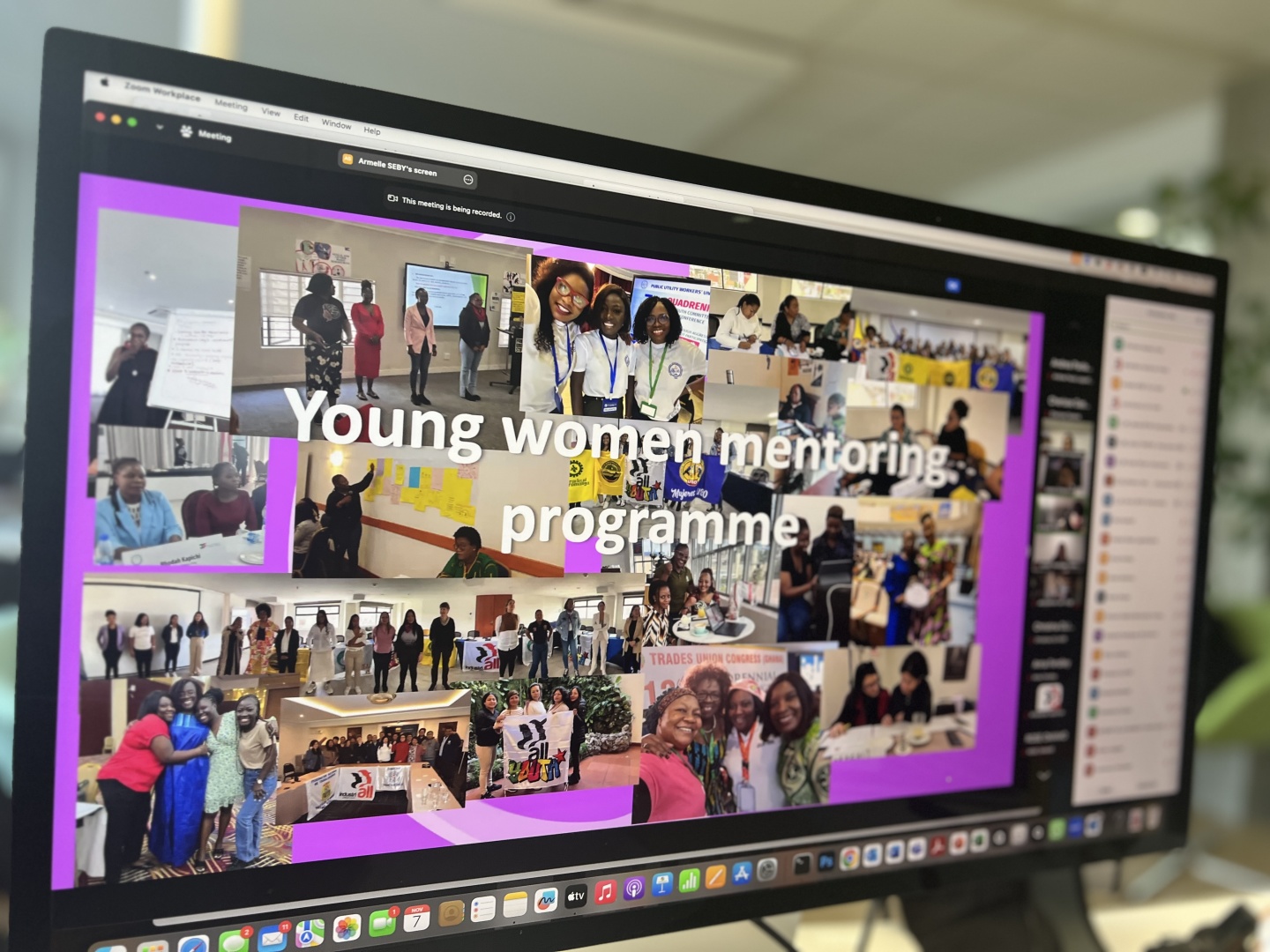13 November, 2024IndustriALL’s Women’s Committee met virtually on 6-7 November to discuss advancing gender equality across sectors. Standout themes were artificial intelligence (AI), due diligence, gender-based violence and harassment (GBVH), and an inspiring pilot mentorship programme.
With AI’s growing influence, the Women’s Committee emphasized the need for a gender-transformative approach to its integration in the workplace. Muriel Garnier from French Equality Lab highlighted AI's gender biases and the risks of reproducing stereotypes within algorithm-driven systems. Garnier shared that
“88 per cent of AI developers are men, and when algorithms are designed by men, they often perpetuate stereotypes and gender bias.”
She stressed the importance of addressing the lack of female representation in tech, with only 15 per cent of women in France working in digital tech sectors.
Olle Brynja, from Unionen (Sweden) echoed these concerns, noting the potential for AI to either reinforce or dismantle workplace discrimination.
“If AI decisions are based on prejudiced data, the technology risks reinforcing discrimination rather than breaking it,”
Brynja stated.
Both Garnier and Brynja emphasised the importance of accountability, calling for stricter evaluations and audits of AI systems to ensure they do not perpetuate inequality. This approach aligns with IndustriALL’s commitment to developing an AI policy that champions gender equity as a foundational principle in its design and deployment.
Jane Pillinger spoke on IndustriALL’s toolkit to prevent GBVH, particularly within the battery supply chain. Pillinger introduced Convention 190 as a transformative framework for integrating GBVH prevention into human rights due diligence, an essential step in promoting safe and equitable workplaces.
“Gender-based violence and harassment aren’t just workplace issues; they are human rights abuses that must be addressed across global supply chains,”
Pillinger stated.
She outlined a six-step process to help companies adopt responsible business practices, from defining policies to mitigating and tracking outcomes. This structured approach empowers trade unions to hold companies accountable, ensuring that GBVH prevention is embedded in every layer of the supply chain.
Pillinger also emphasized the role of trade unions in advocating for and negotiating gender-responsive risk assessments, suggesting that “trade unions can help identify risks and provide evidence where companies fall short in their duty to protect workers.”
This gave fruit for thought when it comes to IndustriALL’s continued campaigns against GBVH, misogyny, and sexism, which will include awareness initiatives like the upcoming 16 Days of Activism and the #NoExcuse campaign.
The second day highlighted new IndustriALL’s mentorship initiative, supported by LO Norway,aimed at empowering 27 young women in Tanzania, Malawi and Ghana in Sub-Saharan Africa and in Peru and Colombia in Latin America. The project’s progress was highlighted with testimonials from mentees and mentors from both regions, showcasing the program's transformative impact on women’s leadership development.
Mildred Addo, a mentee from PUWU in Ghana, shared how mentorship has boosted her confidence
“Mentorship has empowered young women like me to step into leadership, giving us the confidence to influence both nationally and internationally. Six months ago, I wouldn’t have dared,”
she said.
Her experience highlights the mentorship program's potential to create a cycle of growth, where mentees gain skills that they can later pass on to others.
Joyce Maku Appiah, from the same union who mentors young leaders, shared the importance of mentorship in building independence and self-confidence.
“Mentorship isn’t just about guiding; it’s about pushing young leaders to stand on their own, to be innovative, and to lead confidently,”
she said.
Co-chairs Hashmeya Muhsen Alsaadawe and Ilvana Smajlović emphasised the need for collective action to drive change. The committee reviewed IndustriALL’s ongoing campaigns against GBVH and sexism, including updates on the UGTT Garment Women Center and KTCU’s IMAGINE education programme in Korea to engage men in gender equity initiatives.
Discussions also looked ahead to the IndustriALL Congress, with a focus on mainstreaming gender in the Statutes and Action Plans. This session explored proposed amendments to incorporate a stronger gender perspective. Finally, the committee laid out priorities for 2025, including efforts to mainstream gender in occupational health and safety (OSH) and to ensure equitable wage negotiations.
“we are committed to building workplaces that are truly equitable and inclusive,”
said Christina Olivier, IndustriALL assistant general secreatry.
“From establishing AI policies that actively prevent bias to embedding human rights due diligence in addressing gender-based violence, our discussions have laid out a powerful roadmap for real progress on gender equity. The inspiring mentorship program is proof of how we can lift up young women, equipping them to lead and drive change. By uniting policy advocacy, mentorship, and robust due diligence, we’re paving the way for a future where women can thrive across all sectors.”


